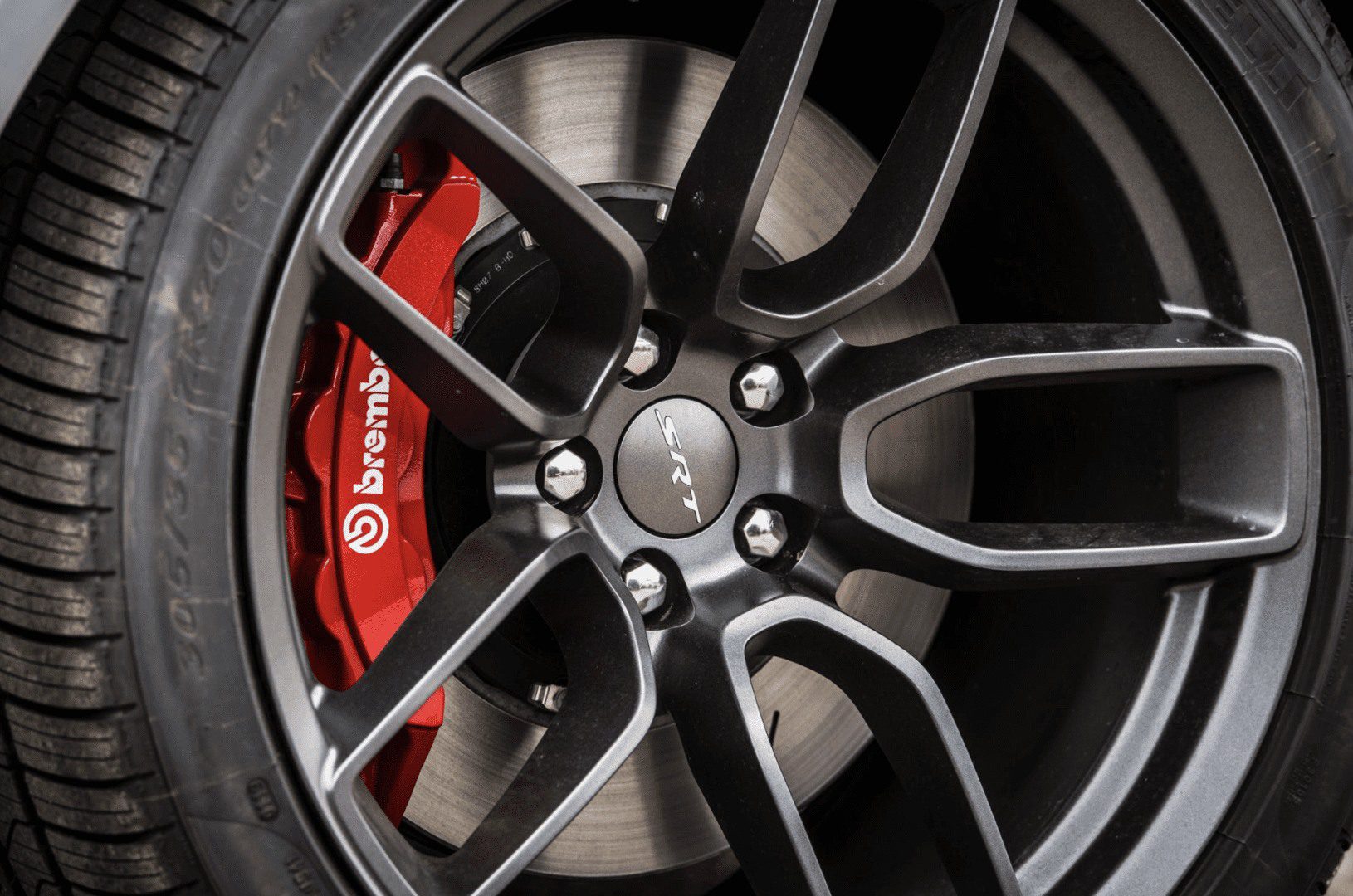Don’t Ignore These 7 Warning Signs of Brake Problems

Brake service is just one of those important routine maintenance chores you can’t ignore. Brake parts have a certain life span and therefore need to be regularly serviced in order to prevent premature failure.
Thankfully, your vehicle will usually give you some clear signals that your brakes are due for service or repair. Sometimes they can give off harmless noises that don’t necessarily require repairs. Other noises mean something’s wrong and should be paid attention to. You can’t neglect your brakes because they are one of the most important safety components in your vehicle.
If you notice any of the following warning signs of brake issues, take your vehicle to your local mechanic and get it looked at.
1. Brake Light On
If you see one of the yellow or red brake indicators on your dashboard light up, you are probably past due for an inspection, or it could be that your vehicle’s smart electronics are alerting you of a problem.
Or perhaps an engaged parking brake is to blame. Before you explore other possibilities, make sure your parking brake is fully released.
2. Squealing, Grinding or Squeaking Noises
If you hear a high-pitched noise when applying the brakes, this could be the brake pad wear indicators. Because they are made of steel, they make this sound when contacting the rotor. Basically, this means your pads are worn out and need to be replaced, or it could result in rotor damage which is expensive to fix.
If you feel grinding in the pedal, it could be something minor like gravel caught in the caliper unit. It could mean, though, that you have gone too long without getting brake service. That metal-on-metal sound you hear could be making grooves in the brake rotor.
Grinding may also mean a lack of lubrication in vehicles that have rear drum brakes. The brake shoe could be scraping on metal contact points such as the backing plate from rust.
3. Wobbling, Scraping or Vibration When Braking
If you feel the steering wheel shake or the brakes vibrate, this could indicate an uneven rotor. Brake rotors are large discs located inside of the wheels. When you apply the brake pedal, the brake pads will get snug to the rotors, leading to a slow-down of your vehicle. Your rotors should be even and smooth.
Over thousands of wheel revolutions, it’s common for the rotor surface to take on some slight variations. Rust may also develop. During brake servicing, the rotor face will be smoothed to correct these flaws.
4. Leaking Fluid
If you experience a soft brake pedal, ask your service technician to look for fluid leaking from the master cylinder or anywhere else in the brake system. The master cylinder, the unit that creates power for your brakes, features a reservoir similar to the one for your wiper fluid.
When applying the brakes, this fluid gets pushed through thin piping, leading to hydraulic pressure. If fluid leaks from this system, there won’t be enough power to force the brake pads to adhere to the rotors.
5. Spongy, Soft Brake Pedal
If you see a difference in the resistance in the brake pedal (perhaps it just feels “softer” or presses all the way to the floor), you should get immediate service. This means there could be air or moisture in the braking system or an issue concerning the master cylinder.
6. Car Pulls to One Side
A brake hose gone bad or a caliper problem could be to blame for this issue. One brake caliper could be applying more pressure during braking, which leads to unbalanced stopping.
7. Burning Smell
If you smell a sharp, chemical odor after repeated braking on a steep road, you have overheated brakes. Pull over right away, check your parking brake to ensure it’s fully released and give the brakes some time to cool down. If you see smoke coming from one of the wheels, this could be a stuck brake caliper.
Contact Mr. Fixit Auto Care
To book an appointment for brake work, please contact us at 916-645-2293. We are open Monday through Friday 7:45 a.m. to 5 p.m. and are conveniently located at 3626 Cincinnati Avenue in Rocklin.
